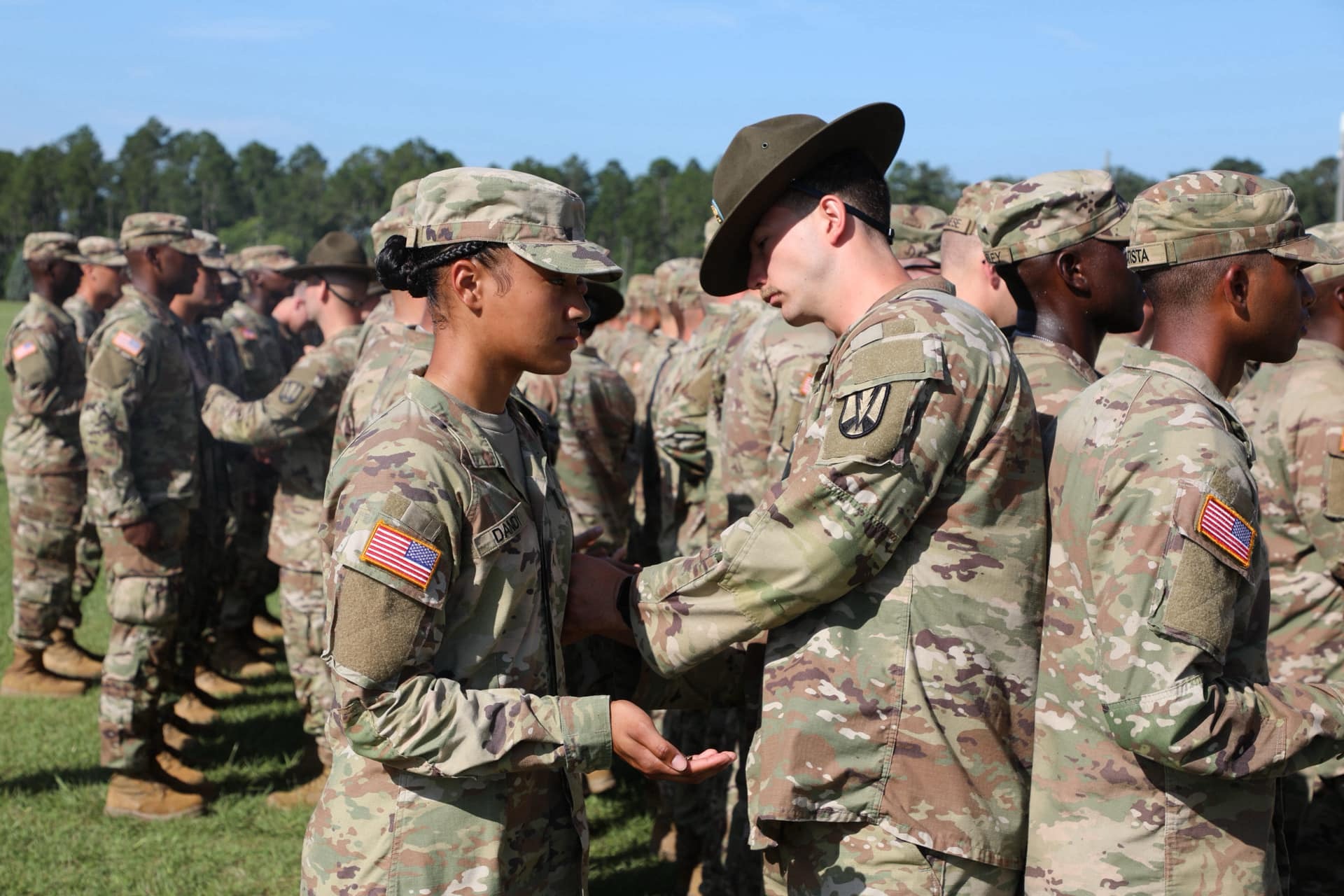- The App
- Sandboxx News
- Resources
Learn
- Company
About
Become a Partner
Support
- The App
- Sandboxx News
- Resources
Learn
- Company
About
Become a Partner
Support

In the Army’s Holistic Health and Fitness (H2F) program, the mental domain is all about building the resilience, focus, and mindset you need to thrive under stress. At Basic Combat Training (BCT) and beyond, your body will be challenged daily—but it’s your mind that decides whether you push through or fall back. Developing mental readiness now means you’ll step onto the training field prepared to adapt, overcome, and lead.
Army life demands quick thinking, emotional control, and the ability to perform under pressure. The H2F program defines mental readiness as the ability to maintain focus, manage stress, and make sound decisions in any environment. Whether you’re pulling security during a field exercise or reacting to a Drill Sergeant’s command, your mental state shapes your performance.
1. Train Your Focus
Distractions are everywhere—but in the Army, focus is mission-critical. Practice small daily habits like reading without your phone nearby, completing tasks without multitasking, and listening intently in conversations. These sharpen your concentration and make it easier to stay locked in when training gets chaotic.
2. Stress Inoculation
You can’t avoid stress in BCT—but you can learn to manage it. Simulate controlled stress in your civilian life: work out while fatigued, solve problems under time limits, or practice public speaking. The more comfortable you get operating under pressure, the calmer you’ll be in high-stress military situations.
3. Positive Self-Talk
The way you speak to yourself matters. Replace “I can’t” with “I will figure it out.” Before challenging events, repeat affirmations like, “I am prepared. I am capable. I will succeed.” This mental shift can give you the push you need when your body wants to quit.
4. Visualization
Mental rehearsal is a powerful tool. Close your eyes and picture yourself executing tasks with confidence—whether that’s marching in formation, passing the ACFT, or qualifying with your rifle. Your brain begins to believe what it rehearses, giving you a mental edge.
5. Build Emotional Control
You’ll be tested not just physically, but emotionally. Practice controlling reactions—whether it’s frustration, impatience, or fear. Pause, breathe, and respond instead of reacting impulsively. This skill will earn you respect from leaders and peers alike.
When you step onto the field for PT, line up for inspection, or enter the gas chamber, your mental strength will be just as important as your physical conditioning. The mental domain helps you:
Final Word
Your mind is your greatest weapon. The more you train it now—through focus, resilience, and intentional practice—the stronger you’ll be when the Army tests you. In Basic Training, the mentally prepared don’t just survive—they excel.
I’ll be back next week with more tips and guidance. Until then, Hooah!
SGM Kris Broadus, U.S. Army (Retired)